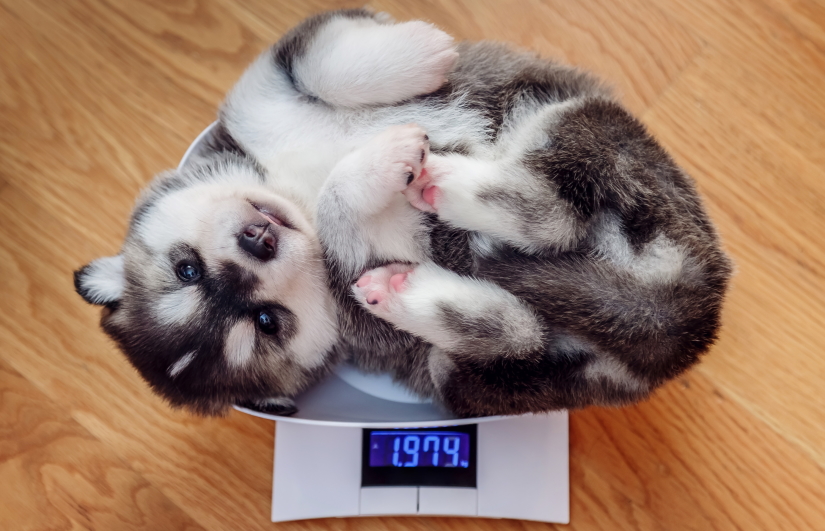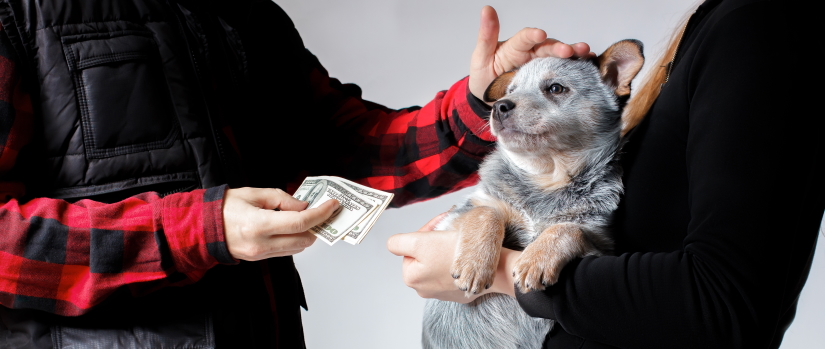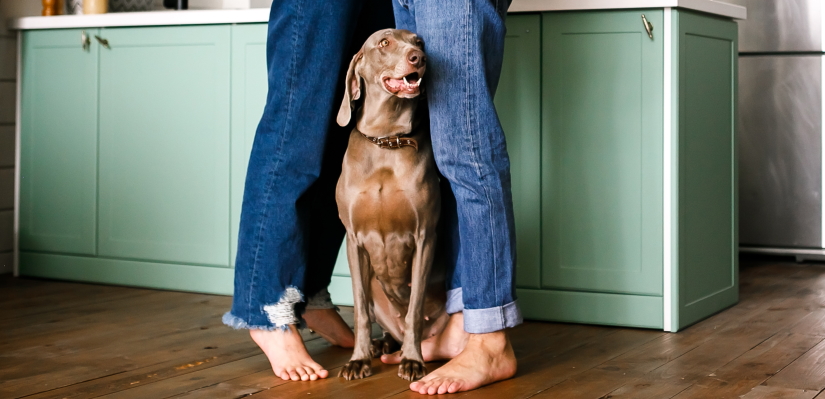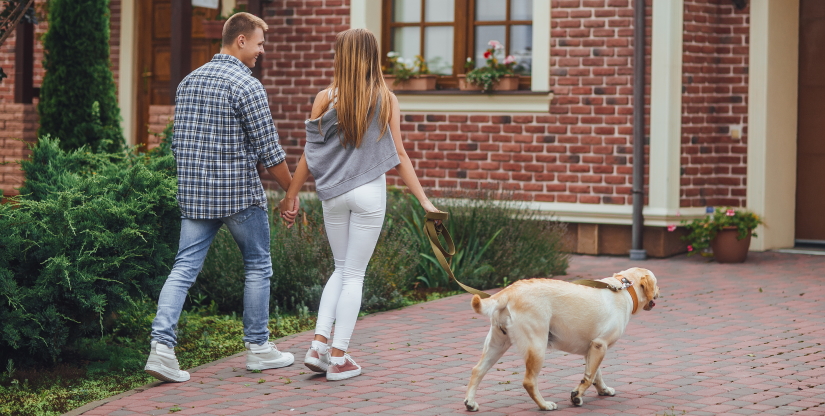So you’ve decided to buy a puppy? Or adopt a dog? How exciting for you and your family to getting a dog.
You might be overwhelmed with information and options. So here is a complete guide to help you choose your future furry friend.
1. What to Consider Before Buying a Dog
Before you go into things such as: what price you should expect, who to buy from, whether you should buy a puppy or older dog and what sort of health problems can your dog have and so on first you have to consider why do you want to go buying a dog.
If this is your first time getting a dog then don’t worry too much about shows, rule changes, standard changes and the like. Instead focus on the very basics: what kind of lifestyle you have, which breed would suit your lifestyle, whether you have children (or want children) if you want a one man dog or if you aren’t home much.
It’s things like these that can make having a dog a nightmare if you don’t take them into account. Most breeds are people oriented and need to spend time with their owners. If you work 12 hours a day you might find there is not enough time to care for your dog which in turn makes it impossible for you and the dog to have a healthy relationship.
Why do you want a dog?
In cases of families most often the kids fall in love with some puppy and then they absolutely, positively have to have a dog. In this case, you’re looking for a fun, low maintenance, good with children and playful dog that can live in small environments and doesn’t bark much, is easy to train and doesn’t shed.
I may have just described the perfect dog. Unfortunately, you’re probably not going to be able to find all of these qualities in the same dog. Sadly, most people are disillusioned when their dog doesn’t turn out to be everything they hoped for. Why? Because they didn’t do the proper research beforehand anyway. If you’re not a family, again, I could describe the perfect dog and I would have to say there’s probably no such dog. So what you’re looking at is compromise.
Since you can’t have everything think of the most important things to you. If you want a watchdog then a quiet dog is out of the question. If you want a guard dog than a really small dog, such as a Chihuahua is, again, out of the question. If having a clean house is important to you then a heavy shedder will be a good source of frustration.
What is the right dog breed for me?
Regardless of why you want to go buying a dog you need to thoroughly research available breeds, and make sure they fit your lifestyle fully. Most people live in apartments, so they prefer smaller dogs, which are more manageable, but that doesn’t mean giant dogs can’t live in an apartment.
You probably have a clue about what type of dog you like – large or small, energetic or laid-back, long-haired or shorthaired, easy to train or stubborn, dominant or submissive and so on. You might even have color preferences (for example I like black Newfoundlands more than other kinds of Newfoundland dogs). This is helpful information that will give you an easier time deciding which dog types you like best.
Try to think of as many things beforehand as possible. Also, think in advance, and realize that a puppies price is nothing compared to what you would pay for veterinary checks, vaccines, food, obedience classes and so on. But after all you are looking for a new member for your family, he deserves the best. And so do you.
A puppy or an older dog?
Many people prefer to get a puppy. Very cute and adorable, it can be very rewarding to raise a puppy all by yourself. But it is quite time-consuming and can be frustrating as well. You need to housebreak them, you need even more research to find out about different puppy stages and how the dogs behavior changes.
You also need to train them and socialize them which requires time and energy that most people don’t have. If you’re in this situation don’t despair, there are plenty of well-civilized, well-bred adult dogs you can get from the same breeders you would get your puppies from.
What is the deal with the breed standard?
Finally, take a look at the breed standard. You have now gone through all the necessary steps and you now know which breed is the best for you. Now, how do you know which breeders have the best dogs? You know that there are plenty of scammers who try to sell you sub-par dogs who were poorly bred, mistreated and who lack health care completely.
This is where knowing the breed standard helps. Of course you don’t care if the dog is 23 or 25 inches high, but if he should be 20 inches high then somewhere there are problems you may not know about until it’s too late. Trust in officials a little bit, there’s a reason they’ve selected that standard – it’s because that’s when the dog exhibits what he should exhibit at his best. So take some time to study how the dog should look like and judge the quality based on that.
In case you’re thinking of buying a puppy ask to see the puppies parents and check them against the standard. Also check the parents health record to see if they are healthy individuals, free of the many problematic hereditary diseases most breeds suffer from. Most of the time the sire (the father) won’t be available for you to see, but a good look at the dam is good enough.
You’re well on your way to getting a high-quality dog that will be very well suited for you and will fit everything you ever wanted from your companion. Now you need to choose a respectable breeder who you can trust.
2. Choosing a Respectable Breeder
So you have chosen the breed and decided to get a puppy. One of the most important steps in choosing your new dog is finding a respectable breeder you can trust. It’s impossible for you to determine accurately how a puppy will grow to be when he reaches adulthood. Therefore you have to put your trust in the person from whom you’re buying a dog.
If you haven’t yet I suggest you first read what to consider before buying a dog. Otherwise what good will choosing a breeder do if you don’t know which breed you want? And how can you know which breed is right for you if you don’t figure out your lifestyle first?
Whichever breeder you go with keep in mind he has (should have) much more experience raising and breeding dogs, especially of the breed you’re looking for. There are also many bogus, so-called “respectful breeders” and here’s how to identify them. There are, generally, three options for you to choose this person:
Option 1: Pet shops and pet dealers
This is the worst possible choice. By now it should be obvious to you that there is a lot of work involved in breeding high level dogs. Pet shops think that puppies are merchandise to be sold for profit. This is not the kind of family member you’re looking for.
Pet shops are a profitable business because many people don’t research properly beforehand and get excited when they see a cute puppy. Don’t make this mistake.
All puppies are cute, but behind this misleading appearance many are sickly and most have serious temperament issues and are much more likely to develop health problems. Furthermore, puppies will change their appearance dramatically in a matter of months. You can’t possibly make a decision based on appearance only.
Option 2: Backyard breeder
Another unfortunate choice. This guy has a purebred dog and thinks it’s a fun and profitable idea to have puppies. They justify it in various ways – a great experience for the kids, a good way to make money, she should be bred once before she’s spayed – and so on.
This breeder usually knows little to nothing about the breed standard and a little less about how to properly raise a litter. He is unaware or doesn’t care about potential problems. His goal is to produce some puppies and quickly sell them once he’s bored.
What started out as a fun idea turns out to be a horrible way to keep the bad traits in the breed going. This is why some breeds have so many health problems and the like. Respectable breeders often eliminate these problems from their dogs, but there aren’t nearly as many respectable people than there are pet shops and backyard breeders. This is why it’s so much better to go the extra mile and find a good provider.
Option 3: Respectable breeder
Here is where the wheat gets separated from the chaff. This person is in it for the enjoyment of each individual dog. He wants to produce the finest possible. What’s more is that the puppy is not likely to cost more than it would in a pet shop, but the quality is infinitely superior.
Here is a list of what every respectable breeder should have before you to consider purchasing a puppy from him. Don’t hold yourself back, confront him on all these requirements and expect him to respond quickly and with pride.
- First of all he should belong to a local or national breed club (For Pugs a Pug club, etc) or an all-breed club. This requirement makes sense because it indicates serious involvement, you can’t be part of such clubs unless you run a tight ship. It’s even better if he’s in all three.
- Ask if he’s involved in showing his dogs in different programs (such as agility trials and so on). This provides him with feedback on how good his dogs really are and gives you a bonus reference to the quality of his puppies.
- He should run a clean environment with healthy, well-socialized puppies. Make sure you notice any inadequacy such as running eyes, rashes, signs of neglect and so on. If you see any of those look for another breeder.
- You should be able to provide you with a health record for every puppy, give you feeding instructions and at the least a three generation pedigree. He should also provide some form of letter that lets you register your dog with the national club.
Apart from those a good breeder is interested in where his dogs go. Expect him to ask you if you had dogs in the past, what happened to them, if you have a fenced yard, how often you’ll be home. Remember that you want him to give you the best possible dog for you, but he wants to give the dog the best possible home as well.
Also, there needs to be some sort of written contract with sale conditions. You should also get a warranty for hereditary problems. Finally, most breeders will ask that the dog be returned to them should you, for any reason, be unable to continue keeping the dog. And don’t be afraid to ask them for advice. Once you’ve found your trusty breeder it’s time to choose your puppy.
3. Choosing an Adult Dog Instead of a Puppy
You’ve decided that you’re not prepared to train and raise a puppy, but you still want the dog. An older puppy, even a mature dog is a great alternative. Many dog breeds are highly adaptable but you have to check for this first before you consider this option.
There are plenty of reasons why older dogs are available. Sometimes breeders hold on to a puppy to determine his breeding potential. Other times someone else had to part with his dog and he was returned to the breeder. In any case he is there for you to take.
Chances are that the dog is already housebroken, well-trained and has many behavior patterns already set. All you need to do is determine that the dog was properly loved and taken care of.
What do I need to know?
First, you need to know that he will probably give you some troubles at first, he will be confused by the many changes between environments and he might suffer from low self-esteem for a little while.
Your job is to be patient and consistent in reassuring him that he’s safe, that this is his new home and that you and him will have a great time together. His self-esteem will return, he will be outgoing again and he will adapt to your routine.
Try to find out everything you can about the dog before you get him. Anything can be helpful, such as habits, daily routine, his diet and history, his favorite toys and activities. Also, make sure that all of your family members meet the dog beforehand and agree that he is the dog you want.
How do I help him adapt to his new home?
Take it upon yourself to be home full time for the first few days. Don’t ever get angry with the dog because he doesn’t know what you want from him yet. Make things clear so he knows where to sleep and where to relieve himself.
Where and when he will eat and what is generally allowed in the house are all equally important. Give him time so he can learn what is expected from him.
After a month or so you can begin formal obedience training. Even if the dog is already quite proficient at various commands obedience training is an excellent way to deepen the bond between you and help both of you understand each other completely.
Getting an older dog, as opposed to a puppy, can mean you get the result you wanted much faster. Both are great companions, equally suitable for you so weigh your options carefully, and only make a decision when you’re sure what you want.







